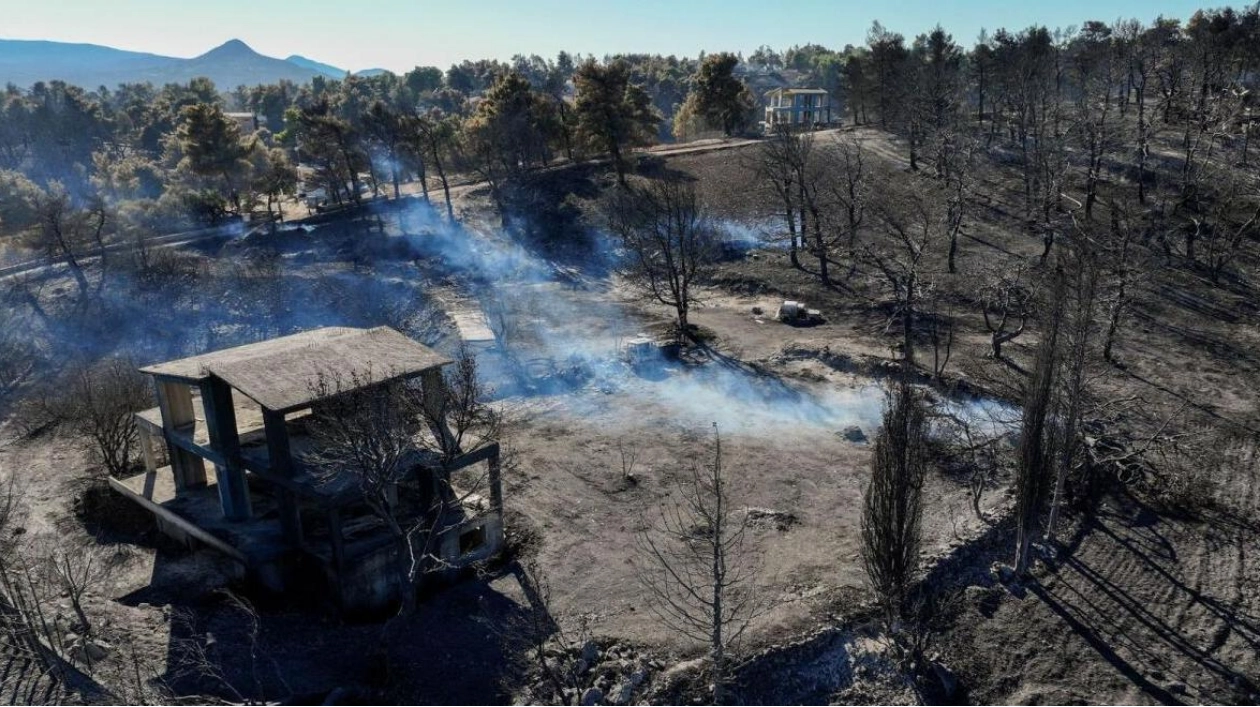Investigators are looking into the possibility that a defective power cable might have sparked Greece's most severe wildfire this year, according to sources familiar with the investigation. The fire, which claimed the life of one woman and burned 10,000 hectares near Athens, an area roughly the size of Paris, started on August 11. It erupted in a forest near Varnavas town, 35km from the capital, and spread rapidly to Athens' northern suburbs, some of which had never experienced a wildfire before.
Authorities have interviewed residents of Varnavas as part of their inquiry into the fire's origin. A 76-year-old man suggested that a wooden electricity pole outside his home, with a cable secured by a hanger, could have been the trigger. This theory is currently the most plausible in the ongoing investigation, which is expected to conclude in the next few months. Arson is also under consideration.
A fire brigade official, who chose to remain anonymous, identified the area near the electricity pole as the fire's starting point. Wildfires are a recurring issue in Greece, often caused by arson, short-circuits, or natural factors. The country has recorded over 8,000 forest fires in 2023. Climate change, leading to hotter weather and less rainfall, has heightened the risk of such fires.
A prosecutor has sent engineers to determine the cause of the latest wildfire. HEDNO, Greece's power network operator, stated that they found no evidence of malfunction. However, they emphasized that only the relevant authorities are authorized to determine the fire's cause. The fire, which stretched 40 kilometers before reaching the suburbs of Penteli and Vrilissia, where one woman died, has been subdued by milder winds. Officials warn that flare-ups are still possible as winds are forecasted to strengthen again.
The fire occurred during a week-long high fire risk alert due to high temperatures and strong winds. Greece experienced its warmest winter on record this year and is on track for its hottest summer with minimal rainfall in many areas, creating conditions ripe for fire disasters, according to firefighters.






